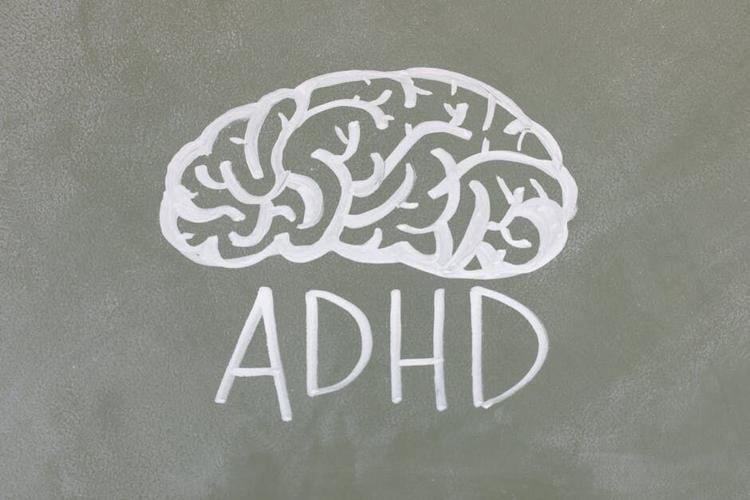Living with Attention Deficit Hyperactivity Disorder (ADHD) can present unique challenges that make daily tasks feel unmanageable. Symptoms of inattention, impulsivity, and hyperactivity can disrupt personal and professional lives. Many individuals remain unaware of their condition, leading to feelings of frustration and helplessness.
Thanks to ADHD testing, individuals can gain clarity, understand their experience, and develop effective coping strategies. Rather than enduring constant struggle, understanding and addressing ADHD can transform how you go through life. Read on to explore the benefits of undergoing ADHD testing and the positive impact it can have on well-being.

The Impact of ADHD
ADHD, or Attention Deficit Hyperactivity Disorder, is a neurodevelopmental condition that affects millions globally, persisting from childhood into adulthood. Symptoms may relate to difficulties with attention, impulsivity, and hyperactivity. These symptoms can make daily tasks exceptionally challenging. Individuals with ADHD may struggle in academic, professional, and social contexts.
Many remain undiagnosed, attributing their difficulties to personal failings rather than neurological differences. This misunderstanding can result in persistent frustration, low self-worth, and anxiety or depression. Gaining a proper understanding of ADHD can break this cycle. Through formal testing, individuals can identify the root of their challenges and better understand how their brain operates. Access the expertise of ADHD specialists ACT, who provide tailored insights that guide effective intervention. Understanding the impact of ADHD is the first step toward reclaiming control and improving quality of life.
Benefits of Early Diagnosis
An early diagnosis of ADHD can change the trajectory of a person’s life. Recognizing symptoms and seeking testing before daily life becomes unmanageable for proactive intervention. Early identification means that children, teens, or even young adults can receive support before the negative consequences of untreated ADHD take root. Tailored educational strategies, access to therapy, and skill-building resources can all promote success and self-confidence.
Parents and caregivers who understand their child’s diagnosis are better equipped to advocate for their academic needs, potentially preventing years of struggle and frustration. Early diagnosis normalizes the experience, reduces stigma, and enables open discussions about mental health. Adults who are diagnosed later in life reflect on how different things might have been with earlier support. An early diagnosis results in more effective treatment and builds resilience, self-awareness, and the capacity to navigate life’s demands more confidently and competently.
Tailored Treatment Plans
Following an ADHD diagnosis, the most significant benefit is the ability to develop a treatment plan tailored to the individual’s unique needs and experiences. ADHD affects people differently: what works for one person might not work for another. A personalized approach allows medical professionals and therapists to create a strategy that targets specific challenges. Treatment includes behavioral therapy, medication, coaching, and lifestyle modifications. Cognitive behavioral therapy (CBT) helps individuals reframe negative thought patterns, and stimulants or non-stimulants can improve focus and reduce impulsivity. Regular follow-ups guarantee that treatment plans are adjusted as needed.
Digital apps, time-management systems, and organizational aids can be incorporated into daily life. Tailored treatment empowers individuals to address ADHD head-on, helping them feel more in control and capable.
Self-Esteem and Confidence
Living undiagnosed with ADHD can damage a person’s self-esteem, as daily struggles may be misinterpreted as laziness or incompetence. These feelings can erode confidence in school or work settings where expectations are not met. A proper ADHD diagnosis can shift this narrative. Instead of viewing themselves as flawed, individuals gain clarity and validation. Knowing there’s a medical explanation for certain behaviors or difficulties can be a profound relief.
Support groups, therapy sessions, and educational resources help individuals reconnect with their strengths and reframe their self-image. As coping strategies are learned and applied successfully, confidence grows. People begin to see what they’re capable of when given the right tools. Improved emotional regulation helps individuals handle criticism and setbacks with resilience. The process of diagnosis and support encourages empowerment, enabling people to believe in themselves and their potential once again.
Improved Relationships
ADHD affects interpersonal dynamics when symptoms like forgetfulness, impulsivity, or inattentiveness are misunderstood. These behaviors can frustrate partners, family members, and friends, sometimes causing rifts in relationships. Without a clear understanding of ADHD, loved ones may take these behaviors personally or misinterpret them as a lack of care or responsibility.
Testing and diagnosis can bridge this gap by providing an explanation and starting point for better communication. When all parties understand that ADHD-related behaviors stem from neurological differences, and not intention, it opens the door to empathy and cooperation. Couples and family therapy can create shared understanding and develop communication strategies. By identifying the disorder and educating those closest to them, individuals create a more compassionate and cooperative environment. Understanding ADHD can transform strained relationships into supportive partnerships grounded in empathy and teamwork.
Academic and Career Success
ADHD testing unlocks access to support systems that promote academic and professional success. For students, a formal diagnosis allows for accommodations like extended testing time, alternative assessments, and classroom support, resources that level the playing field and reduce performance-related anxiety.
Teachers and professors can adjust their approaches, helping students stay engaged and better manage their workload. In the workplace, individuals with ADHD may benefit from flexible schedules, task management tools, and clear communication protocols. A diagnosis makes it easier to request such accommodations under disability legislation, improving job satisfaction and productivity. Career coaches or therapists can assist in identifying strengths and aligning them with professional roles that suit ADHD traits. Knowing limitations helps individuals avoid burnout and build sustainable routines. With proper support, people with ADHD meet expectations and even exceed them.
Developing Coping Mechanisms
Coping strategies can manage ADHD effectively and help the affected people thrive in day-to-day life. Testing provides the roadmap to identify which strategies are most helpful for the individual. Coping mechanisms might include breaking tasks into smaller steps, using reminders or timers, or following structured routines. Mindfulness practices can improve attention and decrease impulsive reactions.
Physical activity regulates energy and improves focus. For some, ADHD coaching or vocational support provides real-time tools for organizing priorities and improving productivity. These strategies become second nature, allowing individuals to respond to challenges with flexibility rather than frustration. Coping mechanisms do more than mitigate symptoms: they build confidence and independence.

Exploring the benefits of ADHD testing highlights its transformative potential. With increased awareness, individuals can move beyond daily struggles and equip themselves with the tools necessary for success. From improved self-esteem to stronger relationships and improved professional performance, seeking a diagnosis opens the road for a more fulfilled life.




(0) comments
We welcome your comments
Log In
Post a comment as Guest
Keep it Clean. Please avoid obscene, vulgar, lewd, racist or sexually-oriented language.
PLEASE TURN OFF YOUR CAPS LOCK.
Don't Threaten. Threats of harming another person will not be tolerated.
Be Truthful. Don't knowingly lie about anyone or anything.
Be Nice. No racism, sexism or any sort of -ism that is degrading to another person.
Be Proactive. Use the 'Report' link on each comment to let us know of abusive posts.
Share with Us. We'd love to hear eyewitness accounts, the history behind an article.